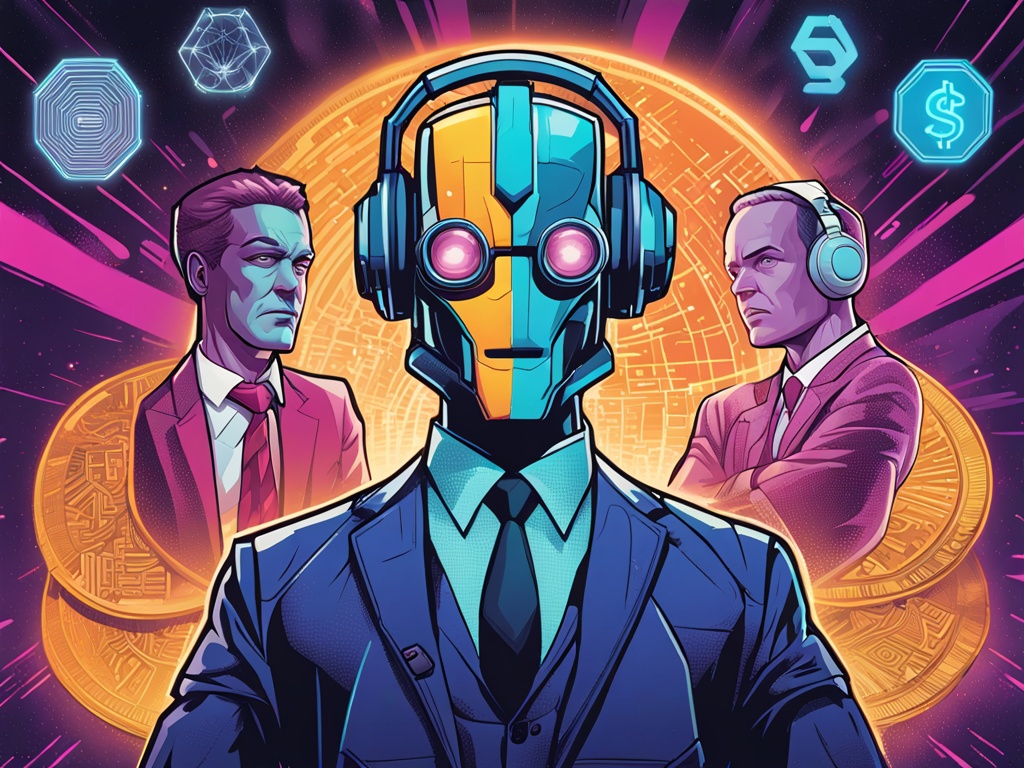Understanding the Evolution of AI Agents 🚀
In a recent dialogue on the NVIDIA AI Podcast, Kanjun Qiu, CEO of Imbue, offered valuable perspectives on the transformation of artificial intelligence (AI) agents and their collaborative significance with users. His observations suggest that the current AI revolution shares similarities with the rise of personal computers in the late 20th century, highlighting the potential for these systems to enhance teamwork with individuals.
Creating Advanced AI Agents 🤖
Imbue aims to advance AI capabilities by incorporating reasoning functions into its products, which improves the reliability of AI responses. This strategy is intended to cultivate a more engaging and user-focused AI framework. The company prioritizes post-training adjustments and fine-tuning methods to enhance the precision of its AI agents, ensuring these systems complement human users rather than simply taking on routine tasks.
The Role of AI Agents in Today’s World 💼
Across various industries, AI agents are increasingly utilized to elevate customer service and user interaction. These intelligent agents assist users by delivering smart solutions and streamlining workflows. A commitment to enriching user experiences is crucial and necessitates ongoing innovation and development in this rapidly changing field.
Looking Ahead: The Future of AI Technology 🔮
Kanjun Qiu’s insights arrive at a pivotal moment for the AI sector, which is gearing up for substantial expansion. Anticipation builds for the upcoming CES keynote, where NVIDIA leader Jensen Huang is scheduled to unveil further developments in AI and graphic technology. This notable event will take place in Las Vegas on January 6, 2024.
AI Integration in Diverse Sectors 🌐
The integration of AI agents into various market sectors serves to enhance operational efficiency and customer experience. Notable applications include:
- Enhanced customer support systems that provide quicker and more accurate responses.
- Intelligent solutions in industries such as healthcare, finance, and logistics.
- Automation of routine tasks while enabling more complex decision-making.
Innovative Problem Solving through AI 🔧
With the continuous evolution of technology, AI agents are tasked with addressing intricate problems. By leveraging advanced algorithms and machine learning, these systems can:
- Analyze vast amounts of data swiftly, uncovering patterns and insights that can inform business strategies.
- Adopt a learning attitude, improving their responses and efficiency over time with minimal human intervention.
Pioneering New Strategies in AI Development 💡
The evolution of AI technology signals the need for fresh approaches in development. Companies are encouraged to explore innovative methodologies for creating more versatile AI agents tailored to specific user requirements. Key strategies involve:
- Integration of user feedback in real-time to refine AI functionalities.
- Collaboration between AI developers and end users to ensure practical applications align with user needs.
Assessing the Impact of AI in Society 🌍
As AI agents become more ingrained within society, their impact can be both profound and multifaceted. Their collaborative nature can lead to productivity enhancements, but it also necessitates a societal dialogue regarding ethical considerations and impact on employment. Understanding these implications is critical as technology continues to shape our world.
Hot Take: Embracing the AI Future 🌟
The conversation surrounding AI is more relevant than ever. As we enter a new era of technological advancement, embracing AI agents as collaborators rather than mere tools could redefine productivity and engagement across all sectors. Keeping abreast of these developments, understanding their implications, and considering how personal and organizational roles evolve with AI is essential for navigating this transformative landscape effectively.





 By
By
 By
By
 By
By
 By
By
 By
By